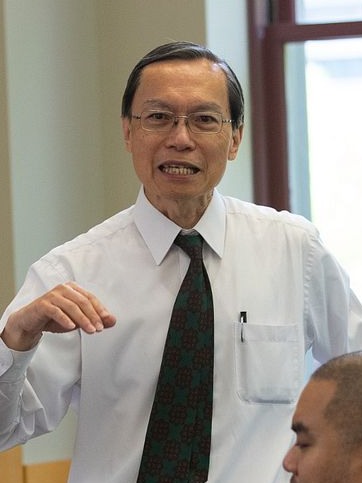PROVIDENCE, R.I. [Brown University] — For more than a decade, the Brown University master’s program in urban education policy has attracted future agents of change. The intensive, year-long UEP program readies students to become researchers, executives, consultants and administrators who confront education inequality in underserved communities across the United States.
Now, thanks to its success, the UEP program is expanding. Beginning next month, the program will accept applications for a part-time, two-year track that will launch in 2024 — targeted toward full-time teachers, Rhode Island education administrators and others for whom a full-time commitment is a barrier.
“Making this degree program available to young, entry-level professionals, particularly those in the field of education, makes it accessible to a broader set of potential applicants who might be looking to build on their existing skills in order to make a bigger impact,” said Kenneth Wong, director of the UEP program and a professor of education policy, international and public affairs, and political science. “It also enriches the UEP program itself: Teachers, education officials and advocates from nonprofits in Rhode Island’s urban core have unique and important perspectives to share with their peers and with faculty.”
The part-time offering isn’t entirely new: For 10 years, an agreement between Brown’s Department of Education and Rhode Island Teach for America has enabled that organization’s teaching fellows in the Ocean State to apply for and join the UEP program on a part-time basis. Wong said that since 2013, a small handful have entered the program each year, sharing valuable insights straight from their classrooms.
“These are teachers currently working in Providence public schools, teaching multilingual learners and special education students,” Wong said. “As professors, we’re good at theorizing and teaching methodology, but sometimes we need a ‘reality check’ — an ear on the ground in these urban classrooms who can advise on how realistic it is to implement certain policies and practices. That is the value that TFA students have added for the last 10 years.”
Wong said the success of that arrangement makes him confident in the future success of an expanded part-time program. He imagines the program could be a good fit for any number of education practitioners in the area — teachers and school administrators, certainly, but also officials within the Rhode Island Department of Education or other state agencies, members of town and city councils who are passionate about improving education, and community organizers who work in education nonprofits. Wong said the part-time option is also ideal for those who have responsibilities as primary caregivers and those who need accommodations for a disability.
“For those who are thinking about systemic change, and who are committed to making a difference in high-needs education settings, there’s a tremendous amount of potential for this part-time program to help them follow their ambitions,” Wong said. “Any kind of education career that involves working at the intersection of policymaking institutions and diverse communities is the kind of career we prepare our graduates for.”
